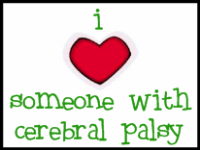
Welcome to Friday Facts! on the Knowledge Safari blog. Every Friday we aim to shine the spotlight on a specific area of special needs from learning disabilities to medical conditions and more! We do this in order to raise awareness and provide information. Today we are shining the light on Congenital Heart Disease (CHD).
What is Congenital Heart Disease?
According the American Heart Association's website:
The word “congenital” means existing at birth. The terms “congenital heart defect” and “congenital heart disease” are often used to mean the same thing, but “defect” is more accurate. The heart ailment is a defect or abnormality, not a disease. A defect results when the heart or blood vessels near the heart don’t develop normally before birth.
If your child is born with a heart defect today, the chances are better than ever that the problem can be overcome and that a normal adult life will follow. Recent progress in diagnosis and treatment (surgery and heart catheterization) makes it possible to fix most defects, even those once thought to be hopeless. As diagnosis and treatment continue to advance, scientists will develop treatments for other defects.
Approximately 36,000 babies are brought home with CHD each year.
Read more by clicking HERE.
Cora's Story
Here is the reason why we are talking about CHD today. Cora and her family. Taken from her website:
Cora Mae McCormick: Born November 30, 2009 and died December 6, 2009.
Cora died in her mother's arms of an undetected congenital heart disease (CHD) early one morning while breastfeeding. Her death was sudden. Her beauty and the compassion and joy she brought her parents remain. Help spread Cora's Story to save and improve lives.
We heard about Cora on the internet as her grieving parents took the web to share her story and raise awareness about CHD. There is a lot of information to learn, but one thing that can really help expecting parents is to know about a test to ask for called a pulse oximetry test. This is a non-invasive test that can potentially help in detecting heart problems. This test won't solve all of the problems but is sure is a start! A well-known blogger Heather Spohr who recently had a baby chose this test for her little Annabel, she blogged about how much comfort it brought her to know about this test. You can read that entry here, which includes a guest post from Kristine, Cora's mom.
----
Personally, I know how hard it is to take a tragedy in your life and use that grief and anger to propel you to turn around and fight for the cause that became the worst experience of your life. It is a hard thing to do, but necessary as this is how issues become known to others so I commend Cora's mom and dad for taking on this task.
You can learn more on their website Cora's Story and on their Facebook page.
Many people with CHD go on to live productive and amazing lives, that is the good news! If you are watching the Vancouver Olympics - you have seen a shining example of someone thriving who was born with CHD - "The Flying Tomato" Shaun White! He was born with a heart defect called Tetralogy of Fallot and had two open heart surgeries before the age of one. No sign of heart problems could be seen as he won his most recent Gold Medal!
This is the outcome that everyone is fighting for -- not to necessarily become an Olympic Athlete but to be able to detect and cure heart defects and to live a full life.
Tell us your experience with CHD or your thoughts in general about this topic in the comments.
Join us on Facebook
Join us on Twitter
Join our Community on Knowlege Safari
Create a REVIEW of your favorite: restaurant, book, hotel, service provider































4 comments:
Interesting...I love Friday Facts. I'm so sorry for this family's loss...but glad they can educate other families!
Thanks for sharing Cora's Story. I'm Cora's mom and first learned about CHD from the coroner. I work so no other mom does. The March of Dimes says that CHD is actually the most common birth defect. Thank you for helping us save lives!
Thanks for stopping by Tiffany and Kristine! We hope this helps to spread the word.
Thank you for highlighting CHD.
Jack Mitchell
Post a Comment